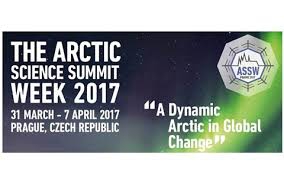The British Antarctic Survey, working with the University of Leeds and Royal Holloway, University of London, will be hosting a workshop on the future of polar governance. The timing of the conference is not coincidental – sixty years ago, the International Geophysical Year (1957-58) initiated the promise of global scientific and political co-operation in the polar regions and their connection to planet Earth. The International Polar Year (2007-8) followed up on that promissory note. The promise of mineral resources in the Arctic also unleashed global speculation about a so-called ‘Scramble for the Arctic’ with fears that conflict, not co-operation, would prevail.
In our workshop, we wish to consider what and where might the future of polar governance lie? International organizations and forums such as the Arctic Council and Antarctic Treaty System are highly significant actors but they do not enjoy a monopoly on polar governance. Newer actors such as China, the European Parliament, the Arctic Circle, commercial operators and high value celebrities and philanthropists are also part of the equation along with indigenous, first nations and aboriginal peoples living in the Arctic for millennia. Historically, colonial and Cold War-era encounters and interventions have had a decisive impact on contemporary polar governance.
Science, resources, and geopolitics often worked together and sometimes against one another: as scientific networks and knowledge exchange came into contact with the national security and economic priorities of governments and the interests and wishes of communities. More recently, fears have been expressed about the role that ‘great powers’ such as Russia and China might play in both the Arctic and Antarctic, and the implications therein for consensus-based governance, resource management and international co-operation. It is also timely to explore the role of private actors in polar environmental governance given a rapidly changing climate, the vulnerability of polar ecosystems, the decline in Arctic summer sea ice, and increased economic activity in polar regions in areas such as tourism and resource development including biological prospecting. Indigenous peoples in the Arctic continue, meanwhile, to press for their cultural, legal and resource rights to be acknowledged and respected by all parties.
This is an interdisciplinary workshop. Proposals for contributions are welcomed from across the disciplines, and we particularly welcome contributions from PhD and early career scholars. The idea of the workshop is to encourage shorter presentations (in the format of 3 slides and 15 minute talks) in order to leave plenty of scope for discussion and interaction with participants. A web-based report will be produced following the workshop.
Possible topics could include:
- Polar governance and region-building
- Scales and site of polar governance: from the everyday to the global
- Climate change governance
- The science-policy interface
- Decolonizing polar governance and the role of indigenous/subaltern politics
- Nationalism and the role of polar environmental and physical sciences
- Environmental and resource governance regimes
- Private environmental governance
- Role of law in polar governance
- Asia and the Arctic/Antarctic
- Legacies of colonialism and/or Cold War
- Aesthetic and cultural engagements
- Celebrities and polar demands’
- The Polar Regions as global commons
Proposals of no more than 250 words should be sent to the William Davies (geo3wd [at] leeds.ac.uk) by the deadline of 31st January 2017. All submissions should include the name of the presenter, their institution, email address, a short biographical profile of the speaker, plus the title and 250-word summary of the proposed presentation. We are able to offer some travel bursary support to UK-based speakers attending the workshop.
There is also space for those who would like to attend the workshop without contributing a presentation. Please register your attendance with Eventbrite through the link above.
Deadline for registrations: Monday 6th March 2017.


